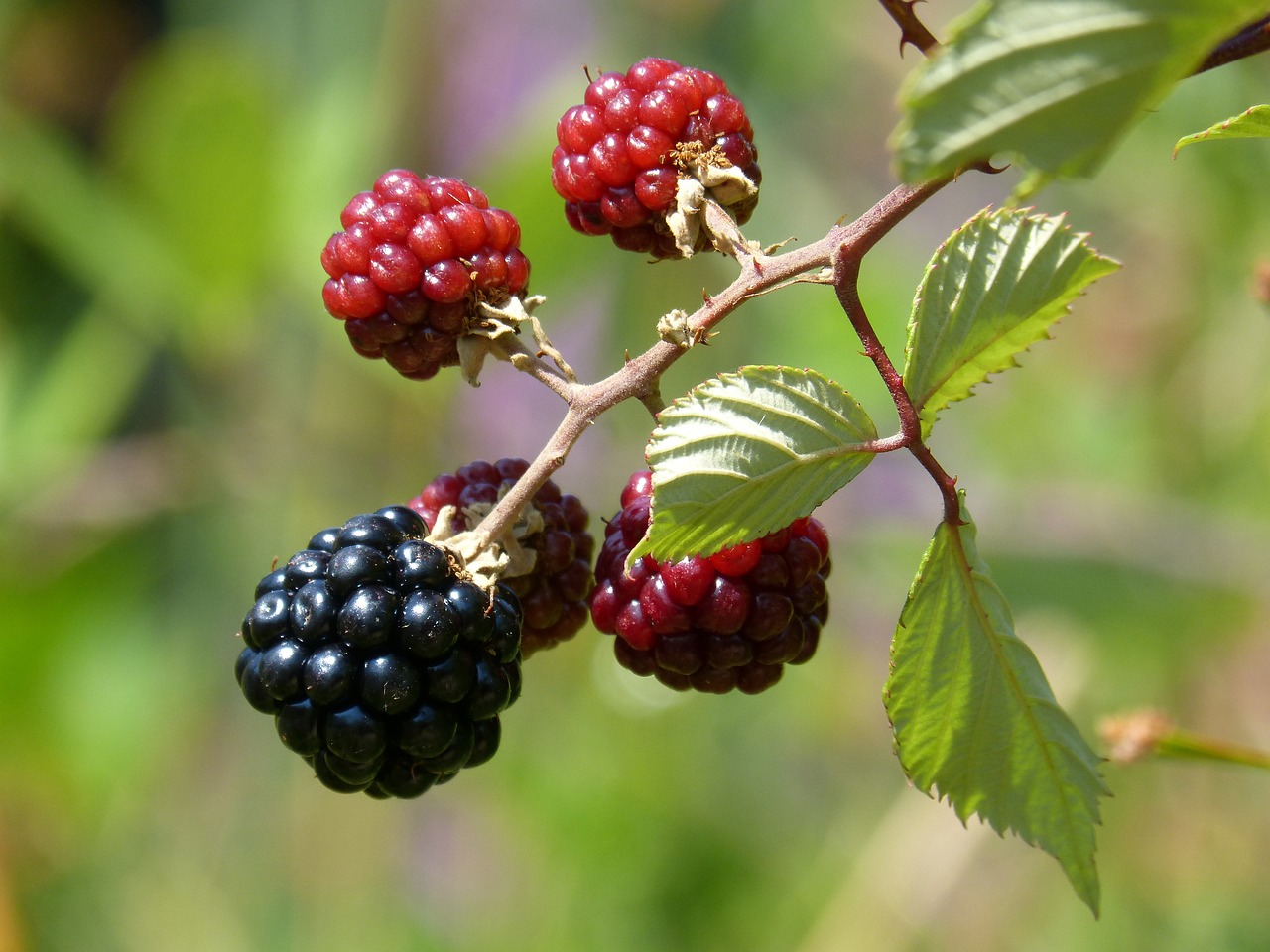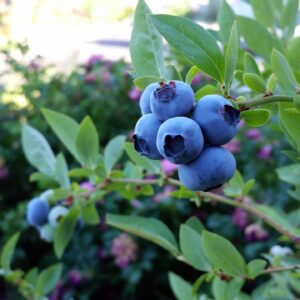The Illinois Hardy blackberry, known for its robust growth and adaptability, is a thorny variety prized for its flavorful fruit. With proper care and maintenance, it can provide abundant harvests of delicious berries for many years.
Plant Characteristics:
Canes: Illinois Hardy blackberries typically grow erect, with vigorous canes that can reach heights of 4-6 feet (1.2-1.8 meters) when fully mature. These canes are sturdy and well-branched, supporting a heavy crop of fruit.
Thorns: As a thorny variety, Illinois Hardy blackberries have sharp thorns along the stems and branches. These thorns serve as protection but require careful handling during harvesting and pruning.
Foliage: The leaves are compound with three to five leaflets per leaf. They are medium green in color and provide a lush backdrop to the fruit clusters.
Fruit: Berries: The berries of Illinois Hardy blackberries are medium to large in size, typically measuring 1-1.5 inches (2.5-3.8 cm) in length. They are glossy black when ripe and have a sweet-tart flavor that is highly regarded for fresh eating, baking, jams, and preserves.
Ripening: Berries ripen in mid to late summer (July-August), depending on local climate and growing conditions. They are generally harvested over a few weeks as they reach peak ripeness.
Climate: Illinois Hardy blackberries are well-suited for climates with cold winters and hot summers, making them particularly suitable for regions like the Midwest and Northeastern United States.
Soil: They prefer well-drained, fertile soil with a slightly acidic to neutral pH. Good drainage is crucial to prevent waterlogging, which can lead to root rot.
Sunlight: Full sun exposure is ideal for maximizing fruit production. Adequate sunlight helps develop robust canes and ensures optimal berry flavor.
Pruning: Annual pruning is essential to maintain plant health, improve air circulation, and encourage vigorous fruiting. Prune canes that have fruited to the ground after harvesting and thin out excess canes to promote new growth.
Support: Trellising or staking may be necessary to support the weight of the canes and berries, especially in windy or exposed locations.
Disease Resistance: Illinois Hardy blackberries exhibit good resistance to common diseases and pests, but regular monitoring and management practices, such as proper sanitation and fungicide applications when needed, help maintain plant health.


